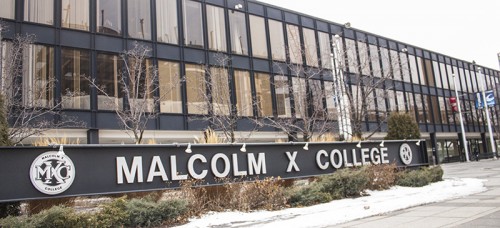
In his Jan. 20 State of the Union Address, President Barack Obama announced a number of initiatives and goals his administration would pursue in the upcoming year. One that produced a good amount of buzz in the weeks that followed was his call for free community colleges across the nation. In particular, Obama pointed to the governments of Chicago and Tennessee for their upcoming free community college models.
However, Chicago’s program is not universal, and, as with most things in this life, not exactly free. Did it deserve its State of the Union shout out?
Announced in October 2014 by Mayor Rahm Emanuel and City Colleges of Chicago (CCC) Chancellor Cheryl Hyman, the Chicago Star Scholarship is designed to fill the gap for students who don’t get full tuition for community college from existing state and federal loans.
The “star” portion of its name is there for a reason: students must have an average GPA of 3.0, be “college ready” in math and English (translating to a 21+ score on the ACT), and enroll in one of the several “pathway programs” offered by the City Colleges.
In some ways, the scholarship resembles merit aid more than financial aid. Additionally, the CCC are only allocating $2 million dollars for the program, compared to the $60 billion over ten years proposed by the president.
Rasmus Lynnerup, Vice Chancellor of the City Colleges of Chicago, said in a Chicago Tribune article that the cost was based on an estimate from Chicago Public Schools (CPS) that roughly 500 to 1,000 students with at least a 3.0 GPA do not attend any kind of college after graduation. He also noted that 85 percent of CPS graduates are eligible for getting all their tuition covered through existing federal and state grants, meaning the Chicago Star Scholarship only applies to a comparatively small portion of the population. Is the importance of the program being overblown, then?
Not by a long shot, William Godwin, former Associate Vice Chancellor of the CCC, said. “$2 million dollars doesn’t sound like a lot, but it is a tremendous amount of dollars,”
Because most students won’t need the Chicago Star Scholarship, the $2 million is really more of an “extra boost” that will push more students for whom “finances are a distraction” to try community college, according to Godwin.
Godwin predicted that Chicago will see an effect similar to what has been seen in Tennessee with its “Tennessee Promise” program where, upon hearing the word “free,” more students than ever actually seek out financial advising.
“Many students don’t know what they don’t know,” Godwin said. A lot of kids say to themselves, “I don’t have any money, (therefore) school is not an option.” By seeking that help, kids will find “enrollment counselors and financial aid advisors to show them options that don’t require taking out loans.”
The impact of free community college on the economy would also be positive, according to Godwin. Using the example of a student attending a two-year institution before heading to a four-year for a bachelor’s degree, he said that free community college frees up thousands of dollars that would have been spent on the first two years at a state university, and allows students to pursue their interests and obtain jobs with “real economic value” without being “strapped with student debt.”
Thanks largely to initiatives set up by Mayor Emanuel’s office in his first term, the City Colleges of Chicago have seen a fairly dramatic uptick in performance, albeit from a fairly low starting place. The graduation rate has almost doubled in the past four years, rising from seven to 13 percent — compared to the national average of 22 percent graduating in three years and 28 percent graduating in four, according to the Community College Research Center at Teachers College at Columbia University.
Godwin said that Emanuel was “at the head of the shift (by) really responding to Obama’s initiative mandate to all community colleges to really be in conversation with local companies and businesses (and finding out) what it is that businesses need but don’t have” in Chicago.
It’s for that reason that he orchestrated the “Guided Pathways to Success” program, which, according to DNAInfo Chicago, has 115 local businesses involved in designing the curriculum at the city’s colleges.
When asked what the CCC can still improve on, Godwin said that increasing awareness about job opportunities for students and career service opportunities would attract more employers to look to the city colleges for workers. He noted, however, that they were on the way.
“It takes time,” he said. “It doesn’t happen overnight.”

